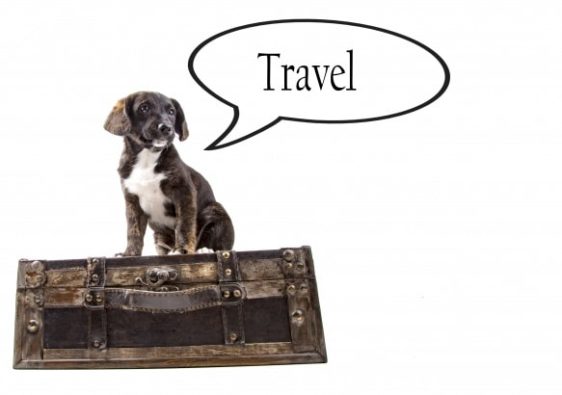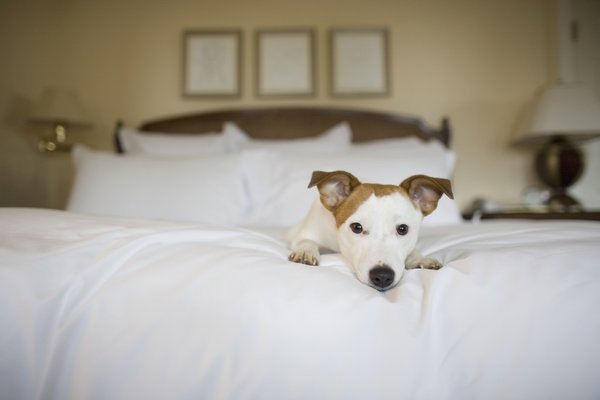Pet-friendly hotels are becoming increasingly popular in the hospitality sector. Both large hotel chains and independent hotels are providing it to guests. If you own a hotel, you might think about allowing pets to stay there to draw in more guests. People are searching for nearby pet-friendly lodging as our collective desire to modify our environment grows. The emphasis has switched to nearby locations because foreign beach vacations may be difficult given the existing limitations. To help their customers feel at home, hotels provide a wide range of amenities, from the basic to the posh and unusual: pedicures, massages, gift baskets, gym classes, gourmet room service, plush bedding, even psychics – no, not for you, for your pet!
Some hotels allow pets in every room, while others only have a few pet-friendly rooms. A lot of hotels charge $25 or less per night for pets, and some demand a $100–150 refundable security deposit for any damages. Some even charge a non-refundable cleaning fee that might be in the neighborhood of $100. Ask questions in advance to guarantee that you are well informed, that you won’t be disappointed and that your stay will be pleasurable and comfortable.
Why should hoteliers care about pet hospitality?
The pet business reached $66 billion in 2016, and when people hunt for lodging, they are increasingly looking for pet-friendly hotels. People spend billions of dollars annually on their dogs. Simply having pet-friendly accommodations can persuade a visitor to reserve a room at a destination, but many hotels are going above and above to ensure the comfort of their furriest guests. Hotels include food bowls, water bowls, outdoor play spaces, and dog runs as pet-friendly amenities.
Why then should hotels decide to provide pet-friendly amenities? Allowing dogs is a terrific way to earn money in addition to the increased demand for searches. Hotels may impose a set daily rate or require a deposit to cover potential damage. Additionally, pet-friendly rooms may be available at a premium rate. To raise company exposure, logos can be imprinted on pet gift items. Alternatively, you may charge extra for dog walking or dog daycare. A guest’s decision to stay at your hotel versus one of your competitors may depend on your ability to accommodate pets.
How do hotels that allow pets operate?
Hotels include food bowls, water bowls, outdoor play spaces, and dog runs as pet-friendly amenities. More and more hotels are introducing doggie cuisine, with room service menus created just for canine palates. These amenities will increase the likelihood that your customers would order room service or eat in because their pets can join them for a delicious dinner.
Highlight how welcoming your hotel is to pets.
Guests who book a stay with a pet may have a variety of inquiries throughout their stay. Making sure there is less room for misunderstanding and that information is clear on your website for these visitors is crucial. For instance, it’s typical to define which animals are permitted to stay as well as a size or weight restriction. Also, be careful to specify which portions of the hotel are pet-friendly. Pets are typically not allowed in public spaces like bars, gyms, and swimming pools. Although this varies depending on the property, it is best to make this explicit on your website. Since there will typically be fewer visitors traveling with pets, it’s crucial to ensure that those traveling without pets also have a good time. Hotels can gain from making a flexible pet policy known to visitors on their website. Information like this is frequently hidden away in an area of the website that is rarely visited. Going a step further, hotels have the chance to use their creativity to better accommodate pets. It makes sense to design packages for this group of travelers given the rise in hotel visitors who are bringing their pets, who can be categorized as a new traveler persona.
Tips for booking a pet-friendly hotel:
- Before making a reservation, be aware of the hotel’s size, weight, age, and breed restrictions. Certain lodgings only accept small dogs (usually under 20-35 pounds).
- Inquire about any pet fees. You might need to pay a pet cleaning fee at the end of your stay or a damage deposit before you arrive. Request a detailed list of the pet fees, including the nonrefundable payments.
- Know how many pets are permitted in a hotel if you are traveling with more than one. Only two pets are allowed per room at some hotels.
- Learn what kinds of pet benefits are available. Do beds, plates for food and drink, toys, rewards, and linens to protect the furniture all come with them?
- Study the guidelines. Is your pet required to be leashed? Can you keep your pet unattended in the space? Does leaving your pet alone in a crate need it?
- Understand the surroundings. Is there a dog park, off-leash area, or open area close by where your pet can exercise and burn off some energy?
- Learn about the services that are provided. Some pet-friendly lodgings include pet-sitting or pet-walking services, which might let you unwind without your pet.
- Bring documentation just in case. It’s a good idea to have your pet’s medical records available even if the majority of pet-friendly hotels do not demand it.
Learn how the hotel is laid out. “Pet rooms” can occasionally double as smoking rooms or older, renovated rooms. You might wish to ask for a non-smoking room and one that is close to an “EXIT” door. Requesting a room away from busy places like the elevator or ice maker may also be a good idea. Your pet can react loudly and excitedly to the noise.

